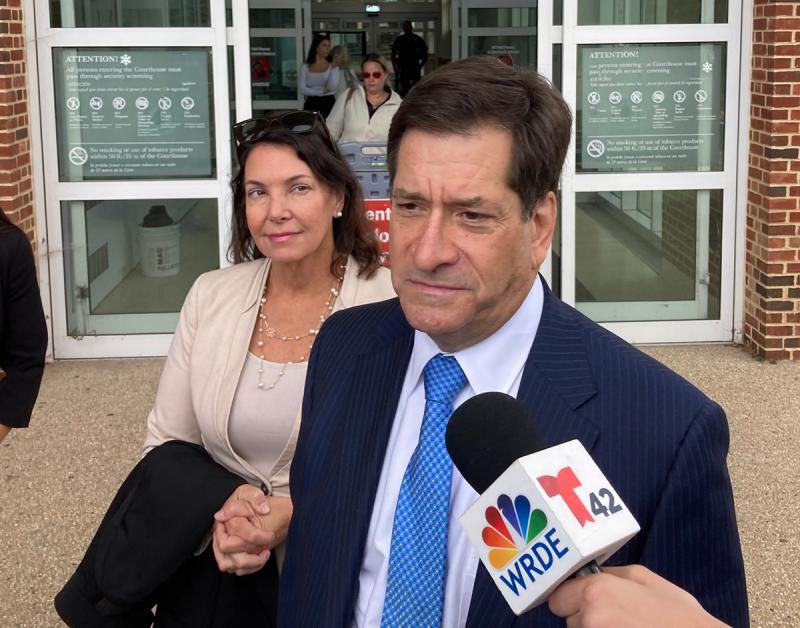Former auditor McGuiness seeks to reverse convictions

The attorney for former State Auditor Kathy McGuiness argued in Delaware Supreme Court Nov. 15 that his client should have her convictions for misconduct and conflict of interest reversed.
Steven Wood said the state relied on false statements in its investigation of McGuiness and suppressed evidence during her trial. The state, represented by Deputy Attorney General Dave McBride, said McGuiness’ conflict of interest conviction holds because she not only gave her daughter a job in the auditor’s office, but she also allowed her daughter to do her job remotely, a benefit other employees were not granted.
McGuiness was found guilty in July 2022 of three misdemeanors, including official misconduct, conflict of interest and structuring. She was found not guilty on charges of felony theft and intimidation. The structuring conviction was overturned in August 2022, but Judge William Carpenter denied McGuiness’ motion for a new trial. McGuiness was defeated by Lydia York in a Democratic primary in September 2022. In October of that year, McGuiness was sentenced to one year of probation and fined $10,000 for the conviction.
In his arguments before the Supreme Court, Wood said the prosecution wanted to paint a picture of McGuiness as a craven politician who committed acts of fraud, and they went to any length to make that picture clear, including relying on false statements in the affidavit of probable cause from the investigating officer, Frank Robinson. That affidavit is what led to a raid on the auditor’s office that resulted in the seizure of three laptops and six digital storage devices. Wood said Robinson later admitted during trial that the statements relied upon for the affidavit of probable cause were false.
Wood alleged that Carpenter, the trial judge, shielded the state from consequences of relying on those statements, and the court allowed evidence against McGuiness that was collected before she could have been aware that she was under investigation. Wood said this was prejudicial to McGuiness because it was before she could have known who the witnesses against her might be. He said Carpenter wrote off the false statements as “investigative techniques” that were used to get information from witnesses. When pressed by Justice Abigail LeGrow, Wood admitted that what Robinson did was an investigative technique, but said those techniques were lies and in bad faith.
Wood said the state also suppressed evidence that may have shown McGuiness’ innocence. He said he repeatedly asked the state to let him see computer files and emails that had been seized from computers at the auditor’s office. Wood said there were 500,000 files on those computers, but the state did not present those files for his viewing until two months before trial.
During his argument, McBride said that information was available to the defense before trial, and there was no evidence within those files that was exculpatory of McGuiness. McBride added that Wood did not provide any documentary evidence that the state suppressed any evidence in McGuiness’ case. In legal briefs filed before oral argument, prosecutors said McGuiness was provided with the information found on the computers and that the state was able to look through those files within a day.
On rebuttal, Wood asked the court to reverse McGuiness’ convictions and either enter a judgment of acquittal or remand for a new trial. He said not doing so would send a message that it is OK for the state to use the tactics it did.
The state is asking for the convictions to be upheld.
Following oral arguments, the justices elected to take the case under advisement.
Ryan Mavity covers Milton and the court system. He is married to Rachel Swick Mavity and has two kids, Alex and Jane. Ryan started with the Cape Gazette all the way back in February 2007, previously covering the City of Rehoboth Beach. A native of Easton, Md. and graduate of Towson University, Ryan enjoys watching the Baltimore Ravens, Washington Capitals and Baltimore Orioles in his spare time.























































